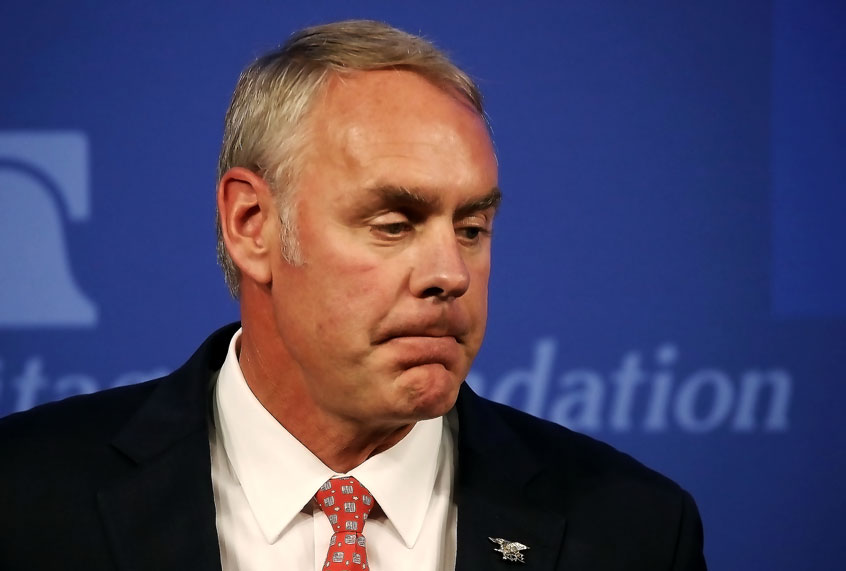Following a build up of frustration after having been neglected by the Trump administration for a year, nine out of 12 members of the National Park System Advisory Board unexpectedly quit on Monday night, citing starkly different viewpoints, which exemplifies how President Donald Trump’s administration has undermined the environment and environmental services.
The board, tasked with advising the National Park Service, is now left “without a functioning body to designate national historic or natural landmarks,” The Washington Post reported, after Interior Secretary Ryan Zinke — who has been wary of anyone outside his own inner circle — had refused to meet with it. Outside committees were suspended by Zinke in May 2017, highlighting how marginalized federal advisory bodies have become since Trump took office.
The board was established in 1935 and is required to meet twice each year, though that has yet to happen under Trump. The board has advised the Interior Department “on how to address climate change, among other issues, and how to encourage younger visitors to frequent the parks,” in recent years, the Post reported.
The move by Zinke, who just announced nearly all U.S. waters — except Florida — would be open to oil and gas drilling, threatens marine life and fits the theme of the Trump administration of dismantling environmental protections, as the Salon video noted below.
“For the last year we have stood by waiting for the chance to meet and continue the partnership between the NPSAB and the DOI and prescribed by law,” chairman Tony Knowles wrote in a departing letter to Zinke. The letter was signed by Knowles and the eight other members who joined in his resignation.
“We understand the complexity of transition but our requests to engage have been ignored and the matters on which we wanted to brief the new department team are clearly not part of its agenda,” Knowles wrote. “However, from all of the events of this past year I have a profound concern that the mission of stewardship, protection, and advancement of our National Parks has been set aside. I hope that future actions of the Department of Interior demonstrate that this is not the case.”
Three members of the panel did not resign:
The three board members who did not resign include Harvard University public finance professor Linda Bilmes, University of Maryland marine science professor Rita Colwell and Carolyn Hessler Radelet, the chief executive of Project Concern International. Terms for the first two end in May, while Radelet’s term does not expire until 2021.
In an email, Bilmes said she did not resign her post because she is conducting research with other colleagues funded by the National Park Foundation, and wanted to complete her project.
In a phone interview with Alaska Public Radio, Knowles explained, “The department showed no interest in learning about or continuing to use the forward-thinking agenda of science, the effect of climate change, protections of the ecosystems, education. And it has rescinded NPS regulations of resource stewardship concerning those very things: biodiversity loss, pollution and climate change.”
It’s not clear how may advisory bodies are operating. While some appear to be, others “are still frozen because the department has yet to approve their updated charters, as is legally required under the Federal Advisory Committee Act,” the Post reported. When asked about the current status of more than 200 boards that had been placed under review, Interior spokeswoman Heather Swift told the Post, “Boards have restarted,” without giving further comment.
Out of 38 Bureau of Land Management’s resource advisory councils (RACs), two have had to postpone meetings scheduled for this week, because their charters were out of date. Zinke has also broken up two panels and has replaced them with at least one new panel so far, known as the Hunting and Shooting Sports Conservation Council, the Post reported.
The hindrances advisory bodies have faced fits a larger theme of the Donald Trump presidency, which has been steadfast in its anti-environment approach. Zinke has a well documented history of being in bed with the oil and gas industry, and he recently made moves to downsize two of Utah’s national monuments. Zinke has also come under fire for taxpayer abuse and has taken private helicopters to travel to various events.

